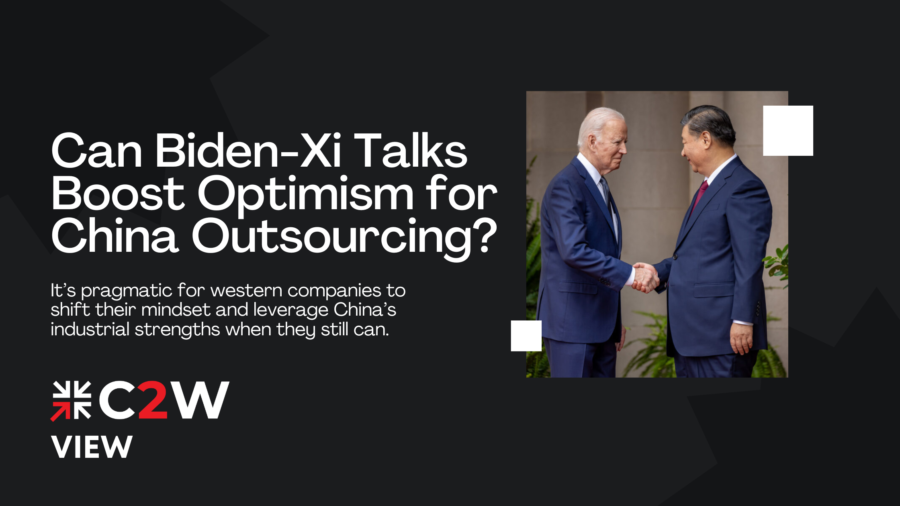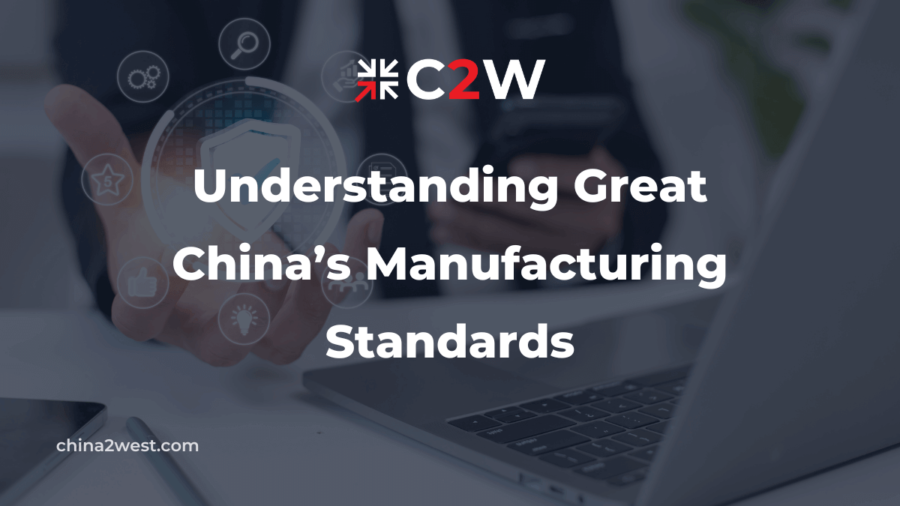Yes, China outsourcing can and should stay on your agenda.
“Planet Earth is big enough for the two countries to succeed.”
This was the remark made by Chinese President Xi Jinping during the meeting with President Biden outside San Francisco just this Wednesday before the APEC Summit.
While this remark came with signs of a US-China relationship slowly thawing and the meeting has set a collaborative tone for the summit, the trade discussions remained frank but still stagnant.
Xi urged the U.S. to lift sanctions, especially the recent tech export control, and create a non-discriminatory environment for Chinese companies; President Biden raised concerns about travel harassment of Americans in China and the less-welcoming business environment compared to the past.
We all know a drastic policy shift by either nation is merely impossible and unrealistic, especially right before 2024 when both Taiwan and the US will have their next Presidential Elections.
So how should we interpret this statement?
First, China does need western businesses to fuel its economic engines.
The sluggish economic growth in the post-COVID era and increasing international skepticism, stressed by the recent raids on American consulting firms and the launch of the State Secret Law, seem to prompt an enhanced emphasis on their “reform and opening up” process.
One example is the lifting of all restrictions on foreign participation in manufacturing, as announced during the Third Belt and Road Forum, demonstrating a more inclusive tendency for foreign businesses.
The Chinese Ministry of Commerce has also, against the odds of geopolitics with the Global North, reiterated policy transformation in joining the CPTPP and DEPA, much to the international community’s surprise.
Correspondingly, the west still wants China, should it be their market or supply chain.
Throughout the year of 2023, soon after China has reopened its borders, we’ve witnessed a parade of global business leaders traveling to the Middle Kingdom.
And an invitation to the dinner with Xi after the meeting between the two leaders was highly coveted among the tech titans, and the attendees included Tim Cook and Elon Musk that night.
But that still doesn’t mean China has accepted the western playbook.
China’s openness to international companies has resulted in a “win-win” situation, with foreign firms benefiting from lower costs and high-quality production, while China strengthens its job market and builds robust supply chain clusters.
International companies, such as Apple and Tesla, have played a significant role in the development of China’s manufacturing sector. Their engagement has led to the growth of local suppliers and the establishment of capable supply chain clusters.
But over three decades into making products for the world, its manufacturing sector has evolved from initially copying Western products to becoming a global leader in various advanced industries, including electric vehicles, green energy products, smart appliances, and communications technology.
There is a growing sentiment that China may lead the world into the Fourth Industrial Revolution, marked by the automation and digitalization of manufacturing and industrial practices, including cyber-physical systems and the Internet of Things.
It’s pragmatic to accept the fact that no one could travel back in time to nip its flourish in the bud, and that China would do everything to steer clear of sliding back into its sidekick days.
So a shift of mindset by western companies to do business, especially when it comes to manufacturing, is necessary before you can still leverage the many strengths of their prosperous industrial evolution.
Simply put, outsourcing is still game. Chinese cheap labor may be a thing of the past, but their technical prowess, full-fledged supply chain, and cost-effective skilled labor remain accessible – seize the opportunity before it slips away.
Collaboration between Chinese and foreign companies may also lead to innovative solutions for building globally competitive companies, which may be a potential catalyst for a new era of exciting innovations and capabilities that could benefit both China and the global community.
But also if Beijing addresses concerns raised by foreign businesses, we can anticipate an increase in high-quality foreign investment in China’s manufacturing sector.
Is Beijing genuine? Just as Biden said, let’s “Trust but Verify”.
At the dinner with tech execs, Xi started his keynote speech with this question, “Are we adversaries or partners?”
Striking a balance between cooperation and safeguarding national interests still does and will always remain a delicate task. But this meeting has provided a glimmer of hope to pull from this downward spiral of the bilateral ties. We’ve seen both the complexities and the efforts by both nations to navigate their intricate relationship.
A complex, yet interdependent relationship.
With nearly 20 years of industry experience in helping western businesses outsource to China, C2W is your China supply chain expert. Feel free to contact us!


